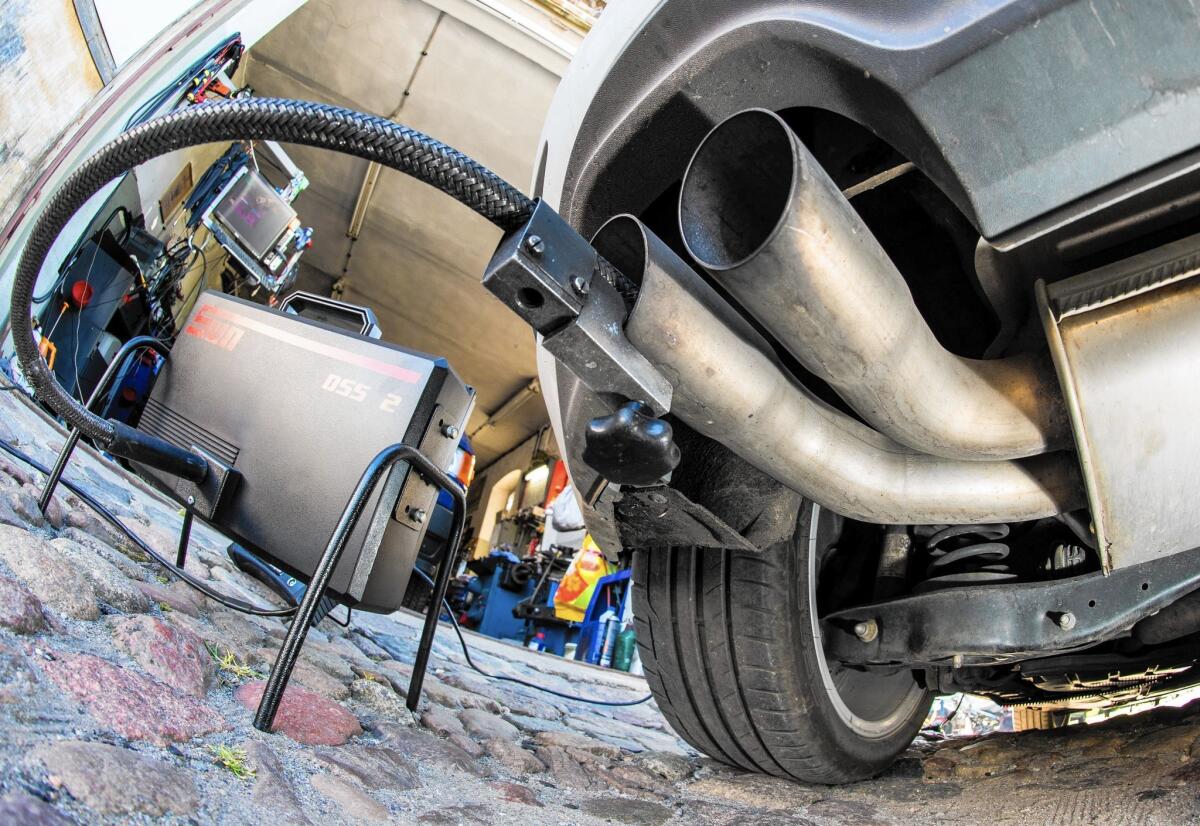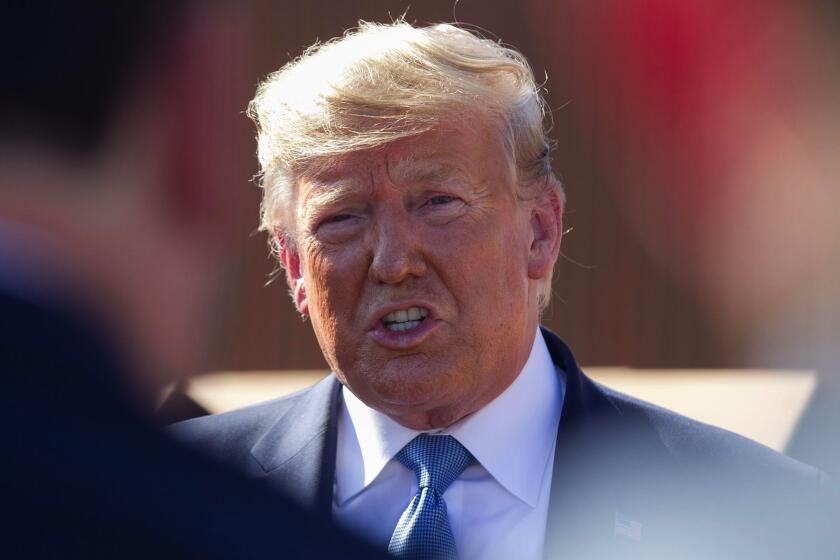California sues Trump again for revoking state’s authority to limit auto emissions

- Share via
California and a coalition of other states filed another lawsuit against the Trump administration Friday challenging its move to revoke their ability to set tougher auto emissions standards than the federal government.
California was joined by 22 other states, Washington, D.C., and the cities of Los Angeles and New York in the suit challenging the administration’s September move to take away the state’s ability to set stricter emissions rules as part of an ongoing attack on government efforts to clean air pollution and fight climate change. It’s the latest jab in the legal battle between California and other like-minded states as they try to stymie Trump’s push to weaken a host of environmental regulations.
California and a coalition of other states filed a separate lawsuit in September challenging the Trump administration’s move to roll back California’s emissions standards that the federal government has moved to dismiss in court.
In that previous lawsuit, California and other allied states challenged federal transportation officials’ findings that the state’s emissions standards were essentially operating as fuel economy rules and preempted by the federal government’s regulations. Friday’s lawsuit challenges the related decision, by the U.S. Environmental Protection Agency, to revoke California’s waiver that allowed the state to set its own, tougher emissions standards.
The filing names EPA Administrator Andrew Wheeler in addition to federal transportation officials who have been working together to weaken fuel efficiency standards adopted under the Obama administration.
For decades, California has used its special status under the federal Clean Air Act to obtain waivers from the U.S. EPA to set its own, more stringent standards, a process the state and others that adhere to them argue is essential to improve air quality and fight climate change.
“We will be asking the court to declare that our right to demand cleaner cars and trucks is protected under the federal Clean Air Act and cannot be taken away by the Trump Administration simply because they don’t believe in the science of climate change — or because they want to punish us for taking action,” California Air Resources Board Chair Mary Nichols said in a statement.
EPA spokeswoman Molly Block said the agency does not comment on pending litigation.
California’s unique authority to set its own tailpipe emissions standards has made the state an environmental leader and irked the Trump administration.
Revoking the waiver would affect not only California but also the 13 other states and the District of Columbia that follow its car pollution standards.
California’s special authority to go further than the federal government in regulating auto pollution dates back to the 1960s, when Los Angeles was enveloped in a thick layer of smog that state officials came to see as a public health crisis. By the time the 1970 federal Clean Air Act took effect, the state had already enacted its own tailpipe emission controls.
Concerned that each state would pass different regulations, Congress decided that the EPA would set vehicle pollution standards for the nation. But it carved out an exception for California, saying that the EPA would be required to grant the state a waiver to set its own rules, provided they were at least as stringent as the federal ones. Other states could choose to follow either California’s regulations or those set by the EPA.
Since then, California has led the country in the adoption of tougher tailpipe regulations and has worked to promote the adoption of electric vehicles. The administration’s action jeopardizes the state’s mandate that automakers sell more zero-emission vehicles and plug-in hybrids and raises new doubts about whether it will be able to meet its goal of having more than 1 million such vehicles on the road by 2025.
More to Read
Sign up for Essential California
The most important California stories and recommendations in your inbox every morning.
You may occasionally receive promotional content from the Los Angeles Times.












